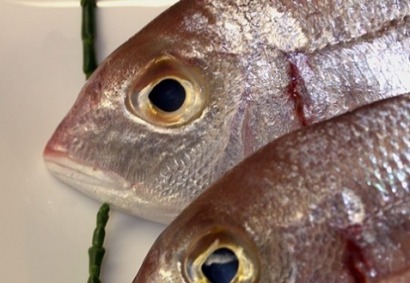
What do fish and cows have to do with each other? Not much, normally, but the by-products of their production can contribute to producing sustainable energy in the form of biogas. The potential of using by-products from fish oil production in combination with cattle manure in a biogas plant has been tested by scientists at Aarhus University and the results are promising.
Using by-products from the omega-3 production process for biogas production shows great potential, especially with regard to soapstock, an inherent result of the an crude vegetable oil refining process, says post-doc Alastair Ward from Aarhus University and head of the research project. Soapstock and bleaching earth are rich in oils and fats which have a high biogas potential.
Fish processing is an important industry in Norway. Refining of fish oil to produce omega-3 oil for human consumption produces several by-products, two of which are soapstock and bleaching earth (an adsorbent clay that removes colour, traces of heavy metals and other impurities from oils). It is estimated that the production of omega-3 oils results in 20,000 tons of soapstock and 30,000 tons of bleaching earth annually. These by-products are rich in oil but are currently not used.
The Aarhus University researchers highlight that their findings could be of particular interest to somewhere like Norway, which produces a lot of fish oil. Biogas production is underdeveloped in Norway due to low energy costs and small farm sizes, which reduce the profitability of this otherwise effective method of treating organic wastes and reducing greenhouse gas emissions from agriculture, and Ward says that "if fish soapstock and bleaching earth can be used as co-substrates with cattle manure, it could increase the profitability of small biogas plants".
The findings of the project show that both bleaching earth and soapstock have good methane yields. There are, however, practical limitations. Combining soapstock with cattle manure, while increasing methane yields, can potentially overload the process and subsequently inhibit the microbial processes if too much soapstock is added. In addition, it was found that the pH of soapstock varies greatly, so it is advisable to measure the pH before adding the soapstock to the substrate.
Addition of bleaching earth increases methane yields to a somewhat lesser degree than addition of soapstock. Addition of large quantities of bleaching earth can stress pumping and mixing equipment due to its high dry matter content and abrasive nature.
For additional information:

